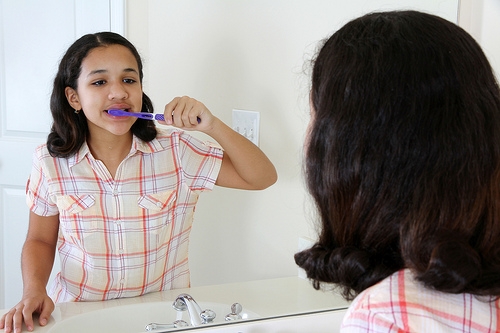Sleep Apnea: How we can help
June 26th, 2024

At Ferndale Family Dental, we understand that getting high-quality sleep is vital to maintaining your overall health. Insufficient sleep can lead to an inability to concentrate, motor vehicle accidents, and difficulty performing at work. Since approximately 18 million Americans suffer from sleep apnea, this poses a significant public health problem. If you think you may have sleep apnea, talk to Drs. Sacro and Quinones and our team about devices that can help you get a good night’s rest.
What is sleep apnea?
Sleep apnea is a relatively common disorder in which breathing stops or becomes very shallow during the night. These bouts of paused breathing may last a few seconds or as long as several minutes. When 30 or more breathing interruptions occur per hour, sleep apnea leads to dramatic reductions in sleep quality. In many cases, this condition is caused by your airway becoming blocked or collapsed during sleep.
Anyone can get sleep apnea, but there are certain factors that increase your risk. Having small airways, being overweight, being male, or having a family history of sleep apnea increases the likelihood that you will develop the disorder. If you think you have sleep apnea, visit highly encourage you to visit our Ferndale, WA office for a thorough physical exam, comprehensive medical history, and a sleep study.
Treatment Options
Several treatment avenues are available for people with sleep apnea. One popular option is to wear an oral appliance. For example, a mandibular advancement device (MAD) looks like a sports mouthguard and slightly repositions your jaw, to keep your airway unobstructed. Another option is a tongue-retraining device (TRD), which holds your tongue in place to ensure that your airway stays open during the night.
For individuals with mild-to-moderate sleep apnea, dental devices are a smart option. Many patients enjoy improved sleep, reductions in snoring, and less fatigue during daytime hours. If you’re curious about getting an oral appliance to help with your sleep apnea, please consult our team at Ferndale Family Dental. After a consultation and examination, we can fit the type of device that works best for your condition.





 Website Powered by Sesame 24-7™
Website Powered by Sesame 24-7™